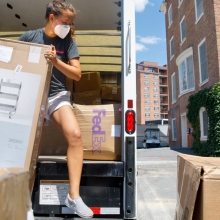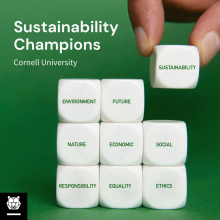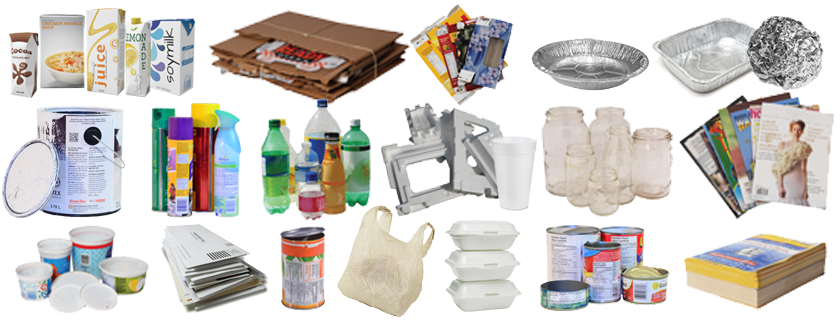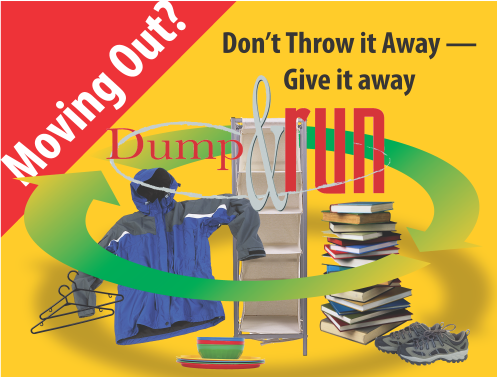
Sustainability Tip
Make change happen. From reducing energy waste to purchasing more sustainable and environmentally friendly products, individuals can make a difference. The Sustainability Tips provide easy ways to take action in your Cornell space that advance our sustainable campus and culture. Have a tip? Share it with us.
Current Tip
Reusable Mug Program
Cornell dining is excited to reinstate the Cornell Dining Reusable Mug Program. Cornell Dining sells reusable stainless steel coffee mugs in coffee houses and cafés. The initial purchase also includes the first beverage.
Grab your favorite clean cup, mug or tumbler and save 10% on all self-serve hot or iced coffee, tea, and fountain beverages. Available at select Cornell Dining Cafés and retail units:
- Amit Bhatia Libe Cafe
- Atrium Café
- Bear Necessities
- Big Red Barn
- Bus Stop Bagels
- Café Jennie
- Dairy Bar
- Goldie's Cafe
- Green Dragon
- Jansen’s Market
- Mann Café
- Martha’s Café
- Mattin’s
- Rusty’s
- Straight from the Market
- Trillium
Reduce Package Deliveries
Ship smarter to reduce fuel and packaging waste
Cornell's Service Centers and delivery services, such as USPS, UPS, and Fedex have become inundated with excessive packages. Whether you live, work on campus, or work from home, we encourage you to rethink how you are shopping for and shipping items. Simple changes can make a big impact, and help reduce packaging waste, carbon emissions, and headaches, like long wait times when picking up packages on campus.
Check if essential items are available locally. Many stores and pharmacies offer same-day delivery services, in-store and curbside pickups, or are conveniently located on TCAT bus routes.
-
Hit pause. Do I really need this?
Use what you already have, repair and share items, get thrifty in Ithaca with dozens of reuse stores, or use the new Swapp app to share and use items with other Cornell community members. Consider using online apps like ThredUp and Poshmark to find gently used clothes and other home goods. And consider keeping a list somewhere for big trips to local stores or shopping areas, where you can look for local goods that are not urgently needed by online delivery. -
Do I need it now?
Before purchasing, leave items in your shopping cart for at least 24hrs. Sometimes the "happy feeling" from an online purchase will fade quickly leaving us to realize we may not really need an item. Or, we can wait to bundle more items into a single package delivery if we delay the expectation of every item arriving within a day or two.Shipping and Storage, helps move boxes of student belongings into Clara Dickson Hall, Thursday, Aug. 13 -
Choose to group shipments together to reduce the number of packages you receive.
You can often consolidate package shipments with one click and still receive them within the same week. This cuts down on cardboard packaging and reduces fuel used in single-item shipments, such as transit to and from the factory and to your campus location or home. -
Properly recycle (or reuse) cardboard boxes and packaging materials.
Cardboard boxes should always be flattened and recycled on campus, ideally within your residential community's loading dock, trash room, or recycling dumpster. For both at work and home, see Cornell's Recycling Rules guide for what materials go into the landfill, recycling, and compost in Tompkins County. Recycling cannot be dirty, so if you have a cardboard box or other paper material that is wet, greasy, or otherwise "dirty", please put it in the landfill. Remember, "wishful recycling" can lead to an entire bin of otherwise useful materials being sent to the landfill. When in doubt, throw it out.
Recognize a Sustainability Champion
Do you know a coworker who always brings a reusable mug to every event? Piloted a waste reduction program? Included climate change in an educational event? Any staff member, at any level, can be recognized as a champion for creating a more sustainable campus and culture with actions big and small. This program is supported by the Campus Sustainability Office.
How to Nominate
-
Enter a short nomination in the HR Appreciation Portal
-
Nominations will be reviewed monthly. Each month, one employee will be selected to receive 50 points in celebration of their sustainability contributions on campus, and their recognizer will receive 15 points for highlighting their colleague’s actions. (Recognition portal points = cash and prizes!)
-
Any staff member can nominate a colleague from any division or department
-
Nominees will also be considered for the annual Cornell University Partners in Sustainability Awards
Questions? Contact us at sustainability@cornell.edu.
Shutdown Before You Leave for Break
When you take a few key steps to shutdown before you leave on winter break, spring break, or any other extended time away from campus, energy savings really add up. Our collective action saves a huge amount of energy on campus and reduces our university’s carbon emissions – critical to achieving carbon neutrality by 2035.
Here's how to shut down before you go:
-
Turn off power strips and unplug any electronics plugged directly into the wall. Many devices use electricity even when turned off.
-
Completely close fume hood sashes in labs. Fume hoods use 50% of energy use on campus. It's critical to fully close fume hoods in all spaces.
-
Turn off the lights. Don't forget to check common spaces
-
Shut all windows tightly, then close blinds and curtains if available
This keeps heating & cooling inside where it belongs - indoors! -
Close all interior and exterior doors.
-
Shutdown non-essential equipment (printers, freezers, growth chambers) in lab and office spaces. Create a checklist with your team to ensure the right equipment is shut down whenever possible.
-
Check the thermostat, and if adjustable, turn down to 64F (but not off) for winter, or 75F for summer
-
Report facilities issues like leaky faucets, broken windows, and overly hot/cold rooms
-
Remind colleagues and students to take these actions.
Share these steps on Facebook, Twitter, and Instagram
Recycling Rules
Why Take Action? If a recycling bin is contaminated with unclean or non-recyclable materials, the entire bin could be thrown away. All campus recycling (from residential and academic buildings) is picked up by the same recycling truck. If truck is full of clean recyclables but one building has contaminated bags, the entire truckload could be thrown in the landfill.
What Can You Do? One of the most important things to know is that recycling must be clean in order to be properly recycled. Be sure to wipe out containers, and when in doubt, put materials in the landfill bins.
How to Take Action
-
When in Doubt, Throw it Out
Contamination can ruin an entire bin, or truck! When in doubt, throw it out - only recycle materials that are allowed.
-
Plastics 1, 2, and 5 - Keep Recycling Alive
At Cornell and Tompkins County you can only recycle plastic with only #1, #2, or #5 on campus so check the bottom of your container before you recycle it. And don't be a wishful recycler.
-
Keep it Clean, Wipe it Clean
Recyclable materials must be clean - food residue will contaminate the system. Here's a tip for making sure you reduce waste when following this rule. Instead of using water to clean items, use a napkin or paper towel to wipe out containers with oil or food debris. Then, compost the napkin / paper towel! Bottom line: We must clean our recyclables before we recycle them.
-
Styrofoam and "Compostable" Serviceware go in the Trash
Styrofoam can never be recycled - even if there is a recycling # on the container. Compostable serviceware does not break down in the compost. These materials must always go to the Landfill.
Download Campus Recycling, Composting and Landfill posters and hang them up in common areas, offices, and near landfill and recycling bins to help your community learn the new rules.
Reduce Energy Use
Why Take Action? Save money, save energy, and lower your carbon footprint.
How to Take Action
-
Plug it in, turn it off
Many devices use electricity even when “turned off,” including TVs, printers, chargers, copiers, coffee makers, microwaves and space heaters. Save 3 kWh / day by plugging items into a power strip and turning it off before leaving / sleeping. No power strip? Simply unplug your electronics instead.
-
Set Room Temperature 1-2 Degrees Lower
Save 1% of your home (or office) energy use for every 1 degree you lower your thermostat in the winter.
-
Use Shades
Cool Room-Close shades during the day, open at night.
Warm Room-Open shades during the day, close at night.
-
Seal Leaky Windows
Air leaks from your windows can let unwanted warm (or cold) air inside the house, which can increase your energy bill. Add weather stripping or caulk to seal up leaks in the windows around your home.
-
Replace Space Heaters
Space heaters use a lot of energy. Consider investing in Cozy Toes and bundling up in a sweater. Purchase Cozy Toes through Amazon for business in e-SHOP for office use.
Choose to Reuse
Why Take Action? As we enter a new phase of work where many staff have flexible work, remote work, or hoteling work locations that may require new or upgraded physical spaces, many of us are considering how to properly outfit our home office or new locations. We can significantly reduce landfill waste and resource waste if we look to reuse materials before purchasing new. The most sustainable product is the one we never build. With so many products already in circulation, consider finding office supplies, including desks, chairs, and other necessary electronic items from one of the many Reuse stores in our surrounding communities.
What Can You Do? Cornell University and Tompkins County have reuse and exchange programs. By choosing to reuse, we can eliminate waste and reduce our environmental footprint from producing new materials.
How to Take Action
-
Go to ReUSE at Cornell to explore Cornell’s exchange programs aimed to facilitate the reuse or re-purpose of materials and reduce landfill waste.
-
Check out Sustainability Tips for Flexible Work on Cornell’s Human Resource Website
-
Other Resources:
-
If you must purchase, please see our webpage Sustainable Purchasing. Sustainable purchasing is integrated into the Campus Sustainability Plan, a guiding document for sustainability in our campus and community.

Purchase a Smart Power Strip
Why Take Action? Plugging electronics such as computers, monitors, and printers into a power strip, or "surge protector" prevents power surges from ruining expensive equipment. But traditional strips draw energy even when electronics are turned off. This is called the phantom load. Studies show it can add up to 10% to an annual electricity bill. Cornell has a goal of reaching campus carbon neutrality by 2035, and our biggest source of greenhouse gas emissions comes from our energy use (and energy waste). Turning off electronics can really add up on a big campus.
What Can You Do? Switching to an Energy Smart Power Strip will still protect your electronics while giving you the option to completely power down and prevent phantom load. We prefer the kind that has an easily accessible "switch" so you don't have to bend down under your desk to power down.
How to Take Action
-
Purchase an Energy Smart Power Strip for every workstation in your office through Cornell e-SHOP. Here are the products we recommend:
-
Belkin Conserve Switch Green Surge Suppressor (2315949)
4ft cord MFG#: F7C01008Q
Price as of 2021: $25.98 via CDW vendor -
Tripp Lite Eco Green Surge Protector (2544319)
Switched 7 outlet MFG# TLP76MSG
Price as of 2021: $25.98 via CDW vendor
-
-
Login to eSHOP and search for these products
-
For the fastest method, select CDW, then select PunchOut. In the Search Bar, enter 2544319 for Tripp or 2315949 for Belkin to quickly find the recommended products




